
I’ve been in SEO for more than 18 years now, so it surprises me that a number of companies still aren’t seeing the value in SEO and digital marketing in general. Such is the case with the 2016 Enterprise Marketing Strategy recently conducted by Clutch and R2integrated.
It seems that there are still a number of misconceptions regarding digital marketing with many companies still not buying in or taking full advantage of the marketing opportunities available online. I was asked to provide some insight regarding the results of the survey for Clutch’s own article. Below is the full text of my interview with Clutch Marketing Manager Natalie Beach.
1. Many use search marketing as part of a broader multi-channel strategy. What role does search marketing play in the customer experience? How does it fit together with other channels?
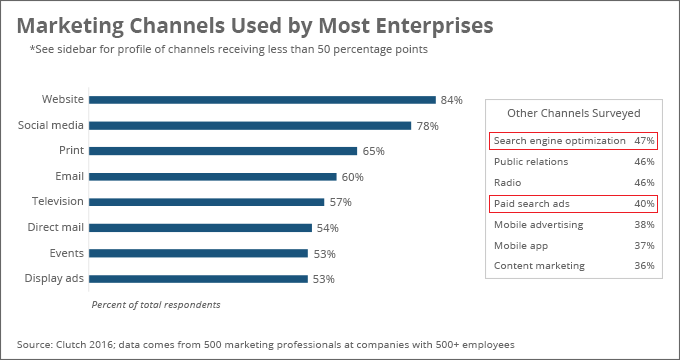
First off, customer experience is an absolutely critical component of web marketing. There is no form of web marketing that isn’t affected by the visitor’s onsite experience. Web marketers can help get rankings, entice clicks and drive traffic, but all of that is useless if the on-site experience is pushing customers away. Even if customer experience optimization, usability or conversion optimization isn’t a primary service attached to a web marketing campaign, the web marketer still must have an understanding of how what they are doing is influencing the visitor once they land on the site.
2. Few consider search marketing to be their #1 near term priority. Any reaction to this? Why do you think isn’t it a priority?
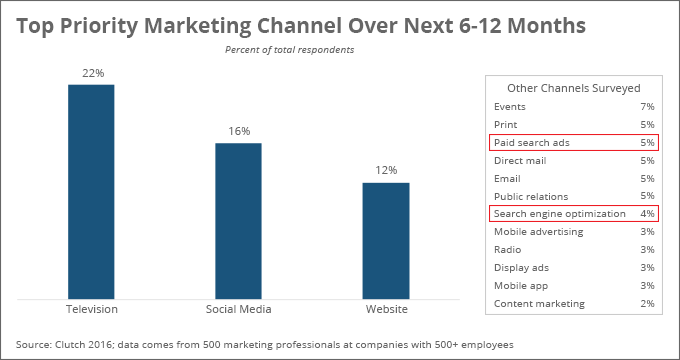
Many businesses are still trying to figure out how to transition to the new marketing platforms. People have a tendency to stick with what they know, which is why you see television so high. In the age of DVRs, it’s amazing to me that this is still such a high priority. For the most part, I think these businesses just haven’t been convinced that search marketing is valuable. One of the hurdles with organic search marketing in particular is that results are never immediate. People want to see value from their money, and it’s a tough sell when you talk long time frames before the ROI is returned.
3. Do you think smaller or mid-size companies might have an advantage if larger companies aren’t making it a priority?
Absolutely! As long as larger companies are staying away from web marketing, that leaves less competition for the smaller guys. But once those big companies do get into the space, they often have much deeper pockets to pour into it, which puts the small companies at an immediate disadvantage. That makes it even more critical for smaller companies to get in now and “claim their space” so to speak. If smaller companies can build authority and achieve some good rankings, it’ll be harder for larger competition to take that away.
4. Most pursue a mixed paid and organic strategy. What is the benefit of pursuing both of these strategies together?
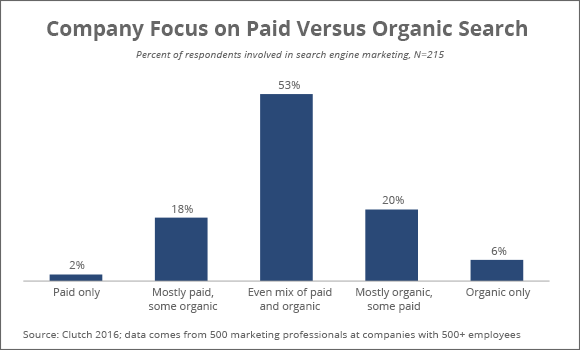
The great thing about paid marketing is it’s much more immediate than organic. If you’re starting an organic campaign, it makes sense to jump into paid at the same time in order to see some immediate results while the organic builds. Other benefits are the co-branding effect. Top rankings in both organic and paid for the same keywords often produce even greater clicks to the site than you’d otherwise get if those rankings were separate. Also, since paid is much more controllable, you can advertise in areas where organic hasn’t been able to establish reach, filling in some critical gaps in exposure.
5. Proving ROI is #1 challenge. Why is it difficult to prove ROI? Is this unique to search marketing?
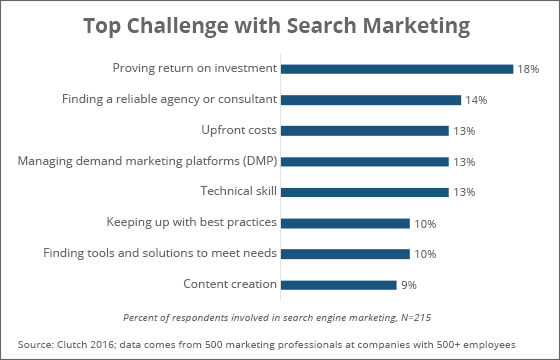
Proving ROI isn’t difficult on the paid side of things. That’s easily proven or dis-proven as the campaign progresses. Mostly, it’s just a matter of using good management strategies to make sure the campaign is profitable. On the organic side, yeah, proving ROI can be difficult because you can’t track specific clicks to sales like you can with paid. However, if you are regularly looking at your analytics, you will either see an increase in traffic and conversions or you won’t. That will tell you whether what you’re doing is or isn’t working.
6. Creating quality content tops priority list for SEO. Are these results surprising? Any reactions?
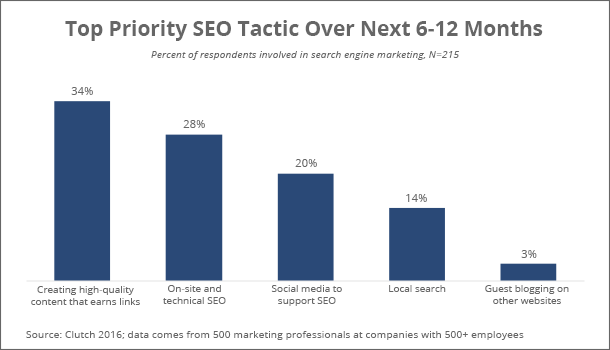
No, not really surprising since content marketing is the new “it” in web marketing. That’s not to diminish its value in any way. It is an important part of web marketing overall. In fact, on-site optimization is less likely to succeed without some form of content strategy in place.
7. Most important success metric according to respondents is traffic volume. Do you support this, or are other metrics more important?
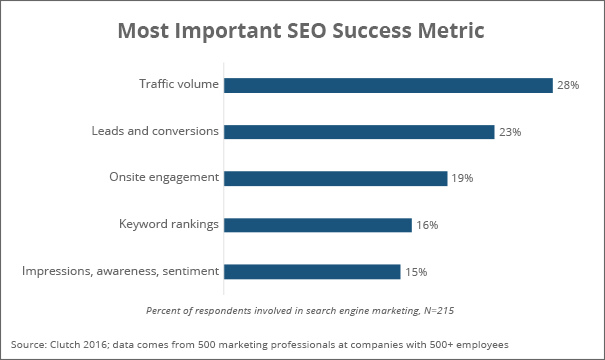
There are far more important metrics than traffic volume for most sites. I’m surprised that leads and conversions didn’t top the list. Traffic without conversions is pretty pointless, really. Also surprising is that keyword rankings makes the list at all. Rankings are a means to an end, never the end itself.
What do you think of these survey results? Let us know in the comments, and don’t forget to check out the whole Clutch article.
